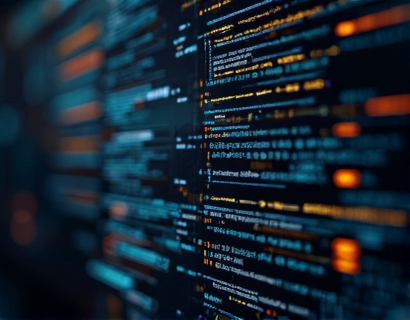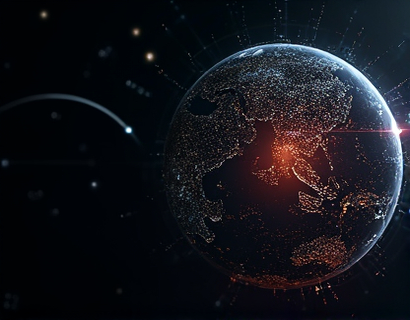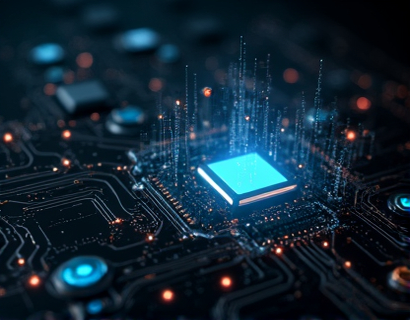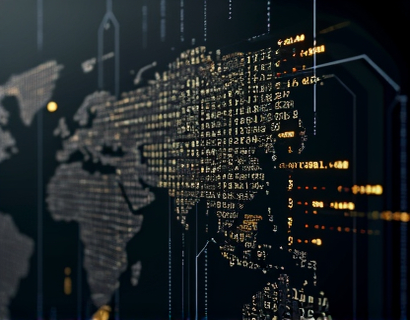AI-Driven Task Management: Streamline Your Life with Intelligent Organizational Tools
In the fast-paced world we live in, managing tasks efficiently has become more crucial than ever. The integration of Artificial Intelligence (AI) into task management tools has revolutionized the way individuals approach their daily activities, offering unprecedented levels of efficiency and personalization. This article delves into the transformative power of AI-driven task management, exploring how these intelligent tools can simplify your tasks, boost productivity, and streamline your daily life, ultimately leading to a more structured and fulfilling existence.
AI-driven task management tools leverage advanced algorithms and machine learning to understand and predict user behavior, preferences, and work patterns. These tools go beyond traditional task management software by providing personalized recommendations, automating repetitive tasks, and offering real-time insights to optimize your workflow. The core advantage of AI in task management lies in its ability to adapt and learn from user interactions, continuously improving its performance and relevance over time.
Personalized Task Management
One of the most significant benefits of AI-driven task management is the personalization it offers. Traditional task management tools require users to manually set priorities, deadlines, and categories, which can be time-consuming and often leads to inconsistencies. AI, however, analyzes your past behavior and current context to automatically assign priorities and deadlines. For instance, if you frequently delay tasks related to project planning but consistently complete them on time, an AI tool will recognize this pattern and adjust its suggestions accordingly.
Moreover, AI can integrate with other applications and services you use daily, such as calendars, email, and cloud storage, to create a seamless and cohesive experience. This integration ensures that all your tasks and appointments are synchronized across platforms, reducing the risk of overlooking important deadlines or meetings. The personalized approach not only saves time but also reduces stress, allowing you to focus on what truly matters.
Automation of Repetitive Tasks
Repetitive tasks are a common pain point for many individuals and teams. AI-driven task management tools excel in automating these tasks, freeing up valuable time for more critical activities. For example, AI can automatically generate recurring tasks based on your historical data, such as weekly team meetings or monthly report submissions. This feature ensures that you never miss an important task, regardless of how busy your schedule gets.
Additionally, AI can handle data entry, scheduling, and even communication tasks. Imagine receiving a client request and having the AI tool automatically create a task to follow up with the client, draft a response, and schedule a call—all without any manual intervention. This level of automation not only boosts productivity but also minimizes human error, ensuring that tasks are completed accurately and efficiently.
Real-Time Insights and Analytics
AI-driven task management tools provide real-time insights and analytics that help you understand your productivity patterns and identify areas for improvement. These tools can track the time spent on tasks, the frequency of task completion, and the overall efficiency of your workflow. By visualizing this data through dashboards and reports, you gain a clearer picture of your productivity trends and can make informed decisions to optimize your work processes.
For instance, if the analytics show that you are most productive in the morning, the AI tool can suggest scheduling critical tasks during this time. Conversely, if you tend to procrastinate on certain types of tasks, the tool can provide insights and strategies to overcome these challenges. These insights are invaluable for continuous improvement and help you develop better habits over time.
Enhanced Collaboration and Team Management
In a collaborative work environment, effective task management is essential for team success. AI-driven tools enhance collaboration by providing a centralized platform where team members can assign, track, and manage tasks in real-time. These tools offer features like task delegation, progress tracking, and comment threads, ensuring that everyone is on the same page and working towards common goals.
AI can also facilitate better team management by identifying bottlenecks and suggesting optimal task assignments based on team members' availability and expertise. For example, if a team member is overloaded with tasks, the AI can automatically redistribute some of their responsibilities to other team members, ensuring a balanced workload and preventing burnout. This level of intelligence in task allocation not only improves efficiency but also fosters a more harmonious and productive team dynamic.
Seamless Integration with Smart Devices
The integration of AI-driven task management tools with smart devices further enhances their utility and convenience. With the rise of voice assistants and smart home devices, users can now manage their tasks hands-free, making it easier to stay organized on the go. For instance, you can use voice commands to add a new task, set a reminder, or check your schedule while driving or cooking.
Moreover, AI can leverage data from smart devices to provide context-aware suggestions. For example, if your calendar shows an upcoming meeting, the AI tool can remind you to prepare the necessary documents or materials in advance. This proactive approach ensures that you are always prepared and can transition smoothly between tasks.
Adaptability to Changing Circumstances
Life is unpredictable, and unexpected events can disrupt even the best-laid plans. AI-driven task management tools are designed to adapt to changing circumstances, ensuring that your productivity remains unaffected. If you receive an urgent request or have to attend an unexpected meeting, the AI can dynamically adjust your task list, rescheduling or delegating tasks as needed.
Furthermore, AI can anticipate potential disruptions based on historical data and external factors, such as weather conditions or traffic updates. For example, if a major event is causing heavy traffic in your area, the AI can suggest alternative routes or adjust your travel schedule to ensure you arrive on time. This level of adaptability makes AI-driven tools indispensable in maintaining a smooth and efficient workflow.
Mental Well-Being and Stress Reduction
Beyond productivity and efficiency, AI-driven task management tools contribute to mental well-being and stress reduction. By automating repetitive tasks and providing clear, actionable insights, these tools help alleviate the mental burden of managing a complex schedule. The reduction in task-related stress allows individuals to focus on their well-being and engage in activities that bring joy and relaxation.
Additionally, AI can suggest breaks and relaxation techniques based on your work patterns and stress levels. For instance, if the AI detects that you have been working continuously for several hours without a break, it can remind you to take a short walk or practice some mindfulness exercises. These small interventions can significantly improve your mental health and overall quality of life.
Future Trends in AI-Driven Task Management
As AI technology continues to evolve, the potential for innovation in task management tools is vast. One emerging trend is the integration of natural language processing (NLP) to enable more intuitive and conversational interactions with the tools. Users will be able to communicate with their task managers using natural language, making the experience more user-friendly and accessible.
Another exciting development is the incorporation of emotional intelligence into AI-driven tools. By understanding and responding to users' emotional states, these tools can provide more empathetic and supportive guidance. For example, if the AI detects that you are feeling overwhelmed, it can offer tailored advice or suggest stress-relief activities to help you regain composure.
Furthermore, the future may see AI-driven task management tools becoming more proactive in predicting and preventing burnout. By analyzing work patterns and stress indicators, the AI can recommend personalized strategies for maintaining a healthy work-life balance, ensuring that users remain productive and fulfilled over the long term.
In conclusion, AI-driven task management tools offer a transformative approach to organizing your life. By providing personalized solutions, automating repetitive tasks, offering real-time insights, enhancing collaboration, and integrating seamlessly with smart devices, these tools significantly boost productivity and streamline daily routines. As technology advances, the potential for AI to enhance our organizational skills and contribute to mental well-being is immense. Embracing these intelligent tools can lead to a more structured, efficient, and fulfilling existence.











































